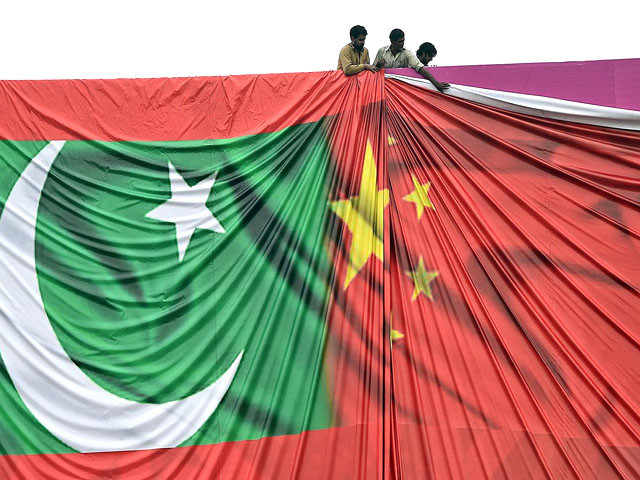IT sectors soar with China-Pakistan digital corridor
Experts stress need for sustainable policies to unlock nation’s digital prowess

The Economic Survey of Pakistan 2024 has highlighted significant growth prospects in the IT and telecommunication sectors, driven by the China-Pakistan digital corridor. The Information Technology (IT) Industry Joint Working Group (JWP) under the China-Pakistan Economic Corridor (CPEC) is dedicated to enhancing and developing China and Pakistan’s information and communication technology infrastructure. This group has aimed to establish a China-Pakistan digital corridor, bolster investment cooperation in the digital economy, and support the development and implementation of new digital technologies and applications.
SI Global Solutions CEO Noman Said shared his views with The Express Tribune, stating, “This initiative, part of CPEC, aims to enhance digital connectivity through improved fibre optic networks, data centres, and cloud computing capabilities. These developments are expected to attract substantial Chinese investment, boost local startups, create job opportunities, and position Pakistan as a regional technology hub.”
He further elaborated that the IT sector, with its competitive labour costs and skilled workforce, has strong potential for growth in software development and IT services. The expansion of 4G and the upcoming introduction of 5G networks further underscores the promising future of telecommunications in Pakistan.
Said stressed the necessity of a long-term policy framework to sustain and maximise these opportunities. In this regard, the role of the Special Investment Facilitation Council (SIFC) is commendable. By streamlining regulatory processes and fostering a business-friendly environment, the SIFC is instrumental in facilitating ease of doing business, particularly through initiatives like the one-window operation, which simplifies administrative procedures for investors.
He added that the strategic focus on digital transformation and supportive policies bodes well for Pakistan’s economic growth and technological advancement. Finance Minister Muhammad Aurangzeb, in his press conference on Tuesday, also stressed the need for growth in two main sectors of the country, namely agriculture and IT, where locals can achieve substantial growth by themselves.
According to the survey, the potential impact of investing in the country’s IT and telecom sectors is immense and wide-ranging. By leveraging technology, Pakistan can boost economic growth, generate employment, increase foreign exchange earnings, improve productivity across various industries, promote innovation and entrepreneurship, and enhance its global competitiveness. Strategic investments in infrastructure, human capital development, and a supportive environment for technology-based businesses are essential steps toward unlocking Pakistan’s IT and telecom sectors’ full potential, thereby fostering sustainable economic growth and prosperity for the nation.
The survey suggests that the country’s digital landscape is experiencing a profound transformation, opening new opportunities for growth, development, and prosperity.
The Pakistan Software Export Board (PSEB) has stated in the survey that the ICT sector in Pakistan has shown significant growth. Over 20,000 IT and IT-enabled Services (ITeS) companies are registered with the Securities and Exchange Commission of Pakistan (SECP). ICT export remittances increased from $339 million to $2.283 billion during FY2024 (July-March), compared to $1.944 billion the previous year. In March 2024 alone, ICT services export remittances surged to $306 million, a 36% increase from March 2023. The IT and ITeS industry achieved a trade surplus of $1.996 billion, the highest among all services, while the overall services sector recorded a trade deficit.
Pakistan’s ICT industry exports to 170 countries and territories. The top 15 export destinations for Pakistan’s ICT industry are the USA, UK, UAE, Ireland, Singapore, Canada, China, Saudi Arabia, Germany, Norway, Sweden, Australia, Switzerland, Japan, and Malaysia.


















COMMENTS
Comments are moderated and generally will be posted if they are on-topic and not abusive.
For more information, please see our Comments FAQ